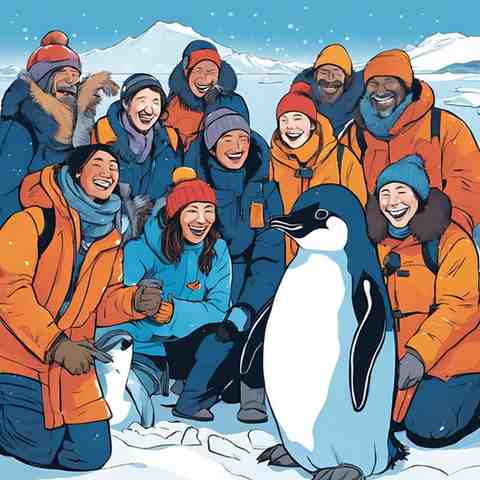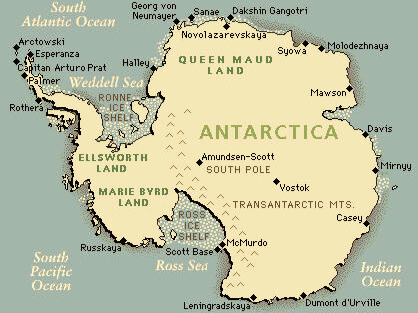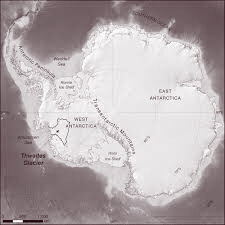Welcome to Antarctica View, your window into the fascinating and frigid realm of Antarctica. Our website is dedicated to sharing the captivating history, complex science, and surprising facts surrounding this unique continent. From the relentless glaciers to the pioneering expeditions that first revealed its hidden world, Antarctica represents a world of mystery and discovery, unlike any other. Here at Antarctica View, we dive deep into its icy landscape, unraveling stories, and scientific insights that not only broaden our knowledge but inspire a sense of wonder about Earth’s final frontier.
Our Mission
Our mission at Antarctica View is simple: to make Antarctica accessible and engaging for everyone. We believe that knowledge about Antarctica should be more than scientific jargon or dry history—it should be an adventure in itself! Our articles are crafted to reveal the beauty, scientific value, and history of Antarctica in a way that’s accessible, accurate, and full of intrigue. Whether you’re a student, researcher, nature enthusiast, or just curious about what lies beyond the snowy peaks and vast glaciers, Antarctica View has something for you.
A Glimpse into Antarctica’s History
Antarctica, the southernmost continent, has intrigued explorers, scientists, and adventurers for centuries. Yet, it was not until 1820 that humans officially documented their first sighting of the Antarctic continent. This sighting was the start of a long journey of exploration marked by hardship, endurance, and curiosity. Some of the most notable early expeditions included those led by British naval officer James Cook and Russian explorers Fabian Gottlieb von Bellingshausen and Mikhail Lazarev, who sailed through its perilous seas in the 18th and 19th centuries. However, it wasn’t until the early 20th century that the world became more familiar with Antarctica’s mysterious lands, thanks to legendary figures such as Robert Falcon Scott, Ernest Shackleton, and Roald Amundsen, who risked everything to explore it.
The race to the South Pole is one of the most dramatic stories in exploration history, with Amundsen becoming the first to reach it in December 1911, closely followed by Scott’s ill-fated team. These expeditions brought the world’s attention to Antarctica and started a scientific era that continues to this day, where modern researchers explore its icy expanse for clues about Earth’s past, present, and future.
Antarctica’s Unique Science
Antarctica is a place like no other when it comes to science. Its harsh, isolated environment has preserved ancient air bubbles within ice cores, which give scientists critical insight into Earth’s climate history over the past 800,000 years. These ice cores are essential to understanding climate change and predicting future environmental shifts, offering a rare glimpse into the atmospheric conditions of ancient Earth. Antarctica’s unique climate also makes it an ideal place for studying phenomena like the ozone layer, which scientists discovered was thinning significantly in the 1980s. Thanks to research conducted at Antarctic bases, we learned about the destructive impact of certain chemicals on the ozone, leading to important global environmental policies.
Beyond climate research, Antarctica is also a rich site for biological and geological studies. Despite its harsh conditions, Antarctica is home to a surprising range of life, from microscopic extremophiles that survive in subzero temperatures to seals, penguins, and other marine animals uniquely adapted to the Antarctic ecosystem. Studying these species offers insights into biological resilience, adaptation, and survival, potentially helping us understand how life might exist on other planets with extreme environments. In terms of geology, the continent’s rocks hold clues to ancient supercontinents and tectonic shifts, adding a crucial chapter to Earth’s geological story.
Key Facts About Antarctica
Antarctica’s features make it a fascinating and distinctive part of our planet. Here are some standout facts:
- Largest Desert: Antarctica, though covered in ice, is technically the world’s largest desert due to its low humidity and limited precipitation, averaging only about 2 inches (50mm) of snow each year. Its dry environment is often compared to conditions found on Mars!
- Extreme Temperatures: The coldest temperature ever recorded on Earth was −128.6°F (−89.2°C) at the Soviet Union’s Vostok Station in 1983. Even during its summer months, average temperatures barely reach above freezing along the coast, while inland regions remain perpetually frozen.
- Massive Ice Sheets: Antarctica holds about 60% of the world’s freshwater locked within its ice sheets. If all Antarctic ice melted, it’s estimated that global sea levels would rise by nearly 200 feet (60 meters), completely reshaping coastal regions worldwide.
- Unique Wildlife: Despite its severe environment, Antarctica supports unique wildlife adapted to survive its extreme cold, including emperor and Adélie penguins, Weddell seals, and even types of hardy plants and fungi in coastal areas.
Antarctica and Climate Change
One of the most pressing issues facing Antarctica today is the impact of climate change. Warming temperatures are affecting the stability of ice sheets, with some areas, like the Antarctic Peninsula, experiencing rapid warming over the past 50 years. The melting of Antarctic ice contributes significantly to global sea level rise, which poses a risk to coastal communities around the world. The melting of the massive West Antarctic Ice Sheet is particularly concerning to scientists, as its loss could result in several meters of sea-level rise.
Antarctica View is dedicated to keeping readers informed about ongoing research and findings related to Antarctica and climate change. We believe it’s crucial to understand how changes to this remote continent can ripple out to affect the entire planet.
Join Us on the Journey
At Antarctica View, we’re passionate about bringing the wonders of Antarctica to life through compelling stories, accessible science, and historical insights. We hope that by exploring the rich history, current science, and unique facts about this icy frontier, you’ll gain a deeper appreciation for the importance of preserving this pristine wilderness.
Whether you’re a curious visitor or a lifelong learner, we invite you to journey with us as we uncover the mysteries of the Antarctic. Subscribe to our blog to stay updated with the latest articles, or feel free to reach out if you have questions, ideas, or topics you’d like us to explore.
Thank you for joining us at Antarctica View. Let’s embark on an adventure of learning and discovery together, from the comfort of our screens to the coldest, most remote continent on Earth.
-
Celebrating Antarctica Day December 1st

Celebrating Antarctica Day: December 1st Every year on December 1st, the world comes together to celebrate Antarctica Day, a day dedicated to honoring the unique status of Antarctica as a continent of peace, science, and international collaboration. This significant day […]
-
Time Zones in Antarctica: A Unique Challenge

Introduction Imagine living in a place where the sun doesn’t rise or set for half the year and where all the world’s time zones technically meet at a single point. That’s Antarctica, a continent that truly defies the typical rules […]
-
Doomsday Glacier’s Accelerated Retreat Poses Grave Threat

A recent study has revealed that the Thwaites Glacier, often dubbed the “Doomsday Glacier,” is melting at an alarming rate, accelerating its potential collapse and significantly contributing to global sea-level rise. Scientists from the International Thwaites Glacier Collaboration have observed […]

